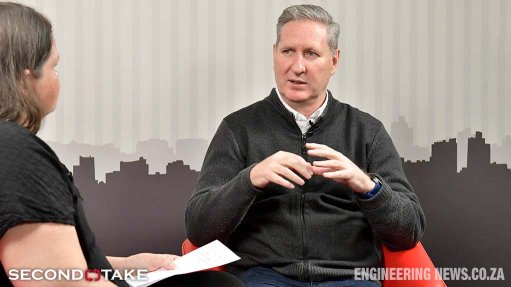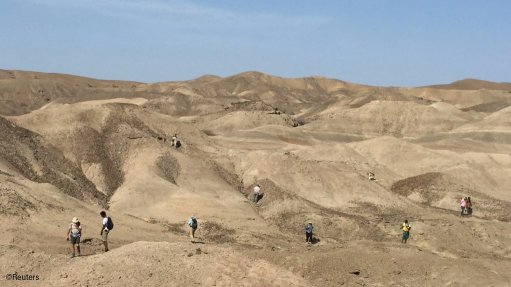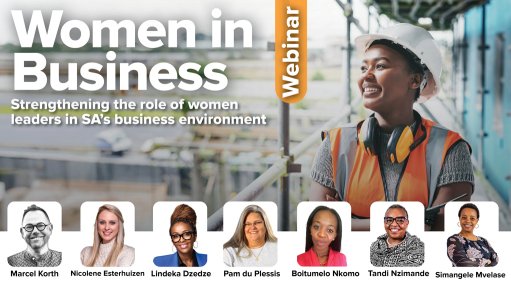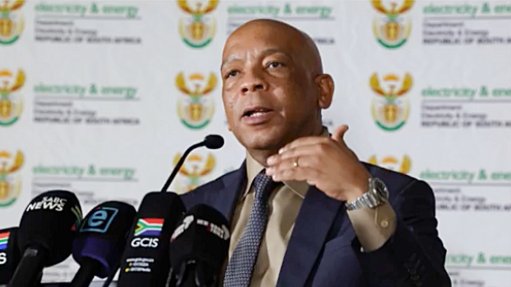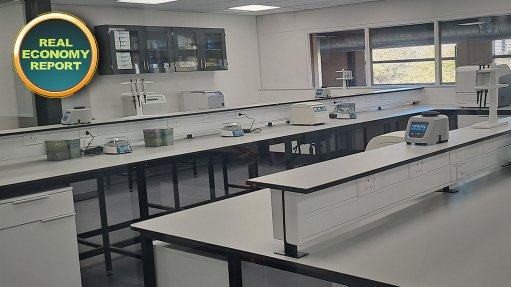A Unified Continental Opportunity: Turning Africa’s Infrastructure Concepts into Concrete Plans
This article has been supplied and will be available for a limited time only on this website.
By: Tshepo Ncube - Head: International Client Coverage, Absa CIB and B20 Finance and Infrastructure Task Force member
Africa’s urban arteries are increasingly congested. Rows of red taillights wind through cities globally recognised for their gridlocked traffic. This visible strain is a symptom of rapid urbanisation and exponential population growth, yet the continent lags in infrastructure development.
According to the United Nations’ World Population Prospects, Africa has become the epicentre of global demographic expansion. In 2024, the population surpassed 1.5 billion. By 2050, it is projected to exceed 2.5 billion, which means one in every four people globally will live on the continent.
The impact that a 28% increase in population growth will have by 2050 is concerning, as Africa’s infrastructure development has not kept pace.
This growing imbalance between population growth and infrastructure capacity has serious implications. It affects not only economic development but also regional stability, trade logistics, and investor sentiment. Without accelerated and coordinated action, the continent may face heightened social pressure, rising service costs, and missed economic opportunities.
Governments have responded by making infrastructure investment a strategic priority. Kenya’s Vision 2030 prioritises world-class infrastructure, with an estimated funding requirement of over Kshs. 2 trillion. South Africa has committed to over 250 infrastructure projects totalling R238 billion. This commitment has set a new record for public investment in roads, energy, water, logistics and other infrastructure, which the South African government believes will enable intra-Africa trade.
Yet scale alone is not enough. The strategy must evolve. Africa’s infrastructure challenge is not purely national – it is fundamentally regional. Historically, fragmented investment patterns, policy misalignment, and limited cross-border coordination have stalled meaningful progress. To unlock the full value of the African Continental Free Trade Area (AfCFTA), a shift towards a more integrated infrastructure approach is essential.
Today, intra-African trade accounts for less than 18 percent of total trade. In contrast, intra-regional trade exceeds 50 percent in Asia and Europe. The missing link is infrastructure that supports physical and financial connectivity.
The Business 20 (B20), the official dialogue forum for G20 South Africa 2025 comes at a critical time. Africa’s annual infrastructure investment requirement stands between 130 and 170 billion US dollars. Government budgets cover only about 40 percent of that need. Closing the gap requires structured capital flows, policy certainty, and governance models that prioritise transparency, regional integration, and strategic execution.
During various B20 task force discussions and events, leaders have reiterated that powering Africa’s growth requires de-risking investment to mobilise private capital at scale. There are two fundamental principles that policy frameworks and regulations must enable – regional coordination combined with innovative financing frameworks.
This includes public-private partnerships with modern construction finance models, bridge loans to manage development-phase cash flow, and partnerships with development finance institutions to de-risk and scale implementation.
With trade volumes expected to grow at 3.5 percent annually until 2040, infrastructure will determine whether this growth translates into sustainable economic outcomes. Road transport alone moves 80 percent of goods across the continent, yet faces some of the world’s highest transport costs due to inefficiency and maintenance backlogs.
Governments must also align regulatory frameworks across borders to attract long-term institutional capital. While each country retains sovereign control, a harmonised approach to investment policy and incentives will accelerate project readiness and enhance Africa’s competitiveness in global capital markets.
Financial institutions must expand their role from transactional banking to infrastructure enablement. This involves designing capital structures that support long-term projects, reward regional collaboration, and align with strategic development goals.
Absa has built strong relationships with the development finance community, utilising the bank’s significant experience in working alongside private and public organisations to enable sustainable infrastructure development.
By successfully securing a $150 million loan from the UK-based finance institution, British International Investment PLC, our role as a leading pan-African bank will be critical in closing the continent’s trade finance gap.
Through this partnership, we will advance efforts around the AfCFTA agreement and extend liquidity to clients across various geographies and trade product sets that are in high demand across Africa. These funds are ringfenced for financing trade transactions, with a focus on sustainable funding.
Africa’s infrastructure future depends not only on funding but on collaboration, alignment, and scalable execution.
By viewing infrastructure as a pan-African system rather than a patchwork of national projects, Africa can unlock mobility, energy resilience, trade efficiency, and digital expansion for generations to come. This is not only an economic imperative. It is a strategic necessity.
Comments
Press Office
Announcements
What's On
Subscribe to improve your user experience...
Option 1 (equivalent of R125 a month):
Receive a weekly copy of Creamer Media's Engineering News & Mining Weekly magazine
(print copy for those in South Africa and e-magazine for those outside of South Africa)
Receive daily email newsletters
Access to full search results
Access archive of magazine back copies
Access to Projects in Progress
Access to ONE Research Report of your choice in PDF format
Option 2 (equivalent of R375 a month):
All benefits from Option 1
PLUS
Access to Creamer Media's Research Channel Africa for ALL Research Reports, in PDF format, on various industrial and mining sectors
including Electricity; Water; Energy Transition; Hydrogen; Roads, Rail and Ports; Coal; Gold; Platinum; Battery Metals; etc.
Already a subscriber?
Forgotten your password?
Receive weekly copy of Creamer Media's Engineering News & Mining Weekly magazine (print copy for those in South Africa and e-magazine for those outside of South Africa)
➕
Recieve daily email newsletters
➕
Access to full search results
➕
Access archive of magazine back copies
➕
Access to Projects in Progress
➕
Access to ONE Research Report of your choice in PDF format
RESEARCH CHANNEL AFRICA
R4500 (equivalent of R375 a month)
SUBSCRIBEAll benefits from Option 1
➕
Access to Creamer Media's Research Channel Africa for ALL Research Reports on various industrial and mining sectors, in PDF format, including on:
Electricity
➕
Water
➕
Energy Transition
➕
Hydrogen
➕
Roads, Rail and Ports
➕
Coal
➕
Gold
➕
Platinum
➕
Battery Metals
➕
etc.
Receive all benefits from Option 1 or Option 2 delivered to numerous people at your company
➕
Multiple User names and Passwords for simultaneous log-ins
➕
Intranet integration access to all in your organisation











